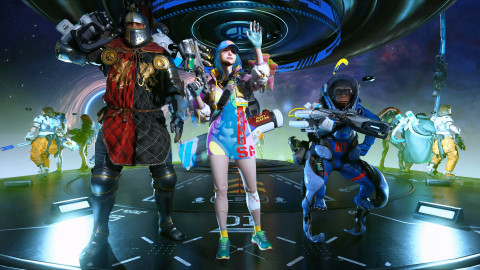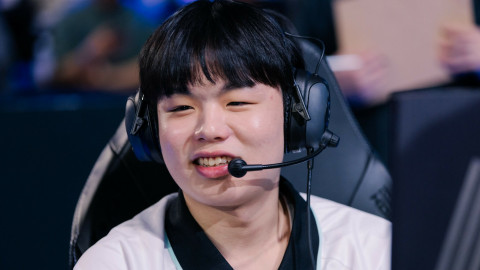
For those of us in the United States, Black Friday is a gargantuan holiday. Taking place the day after Thanksgiving, the savings customers can receive on everything from electronics to silverware are so great that it has begun to overshadow Thanksgiving itself. Of course, video games also see their price tags slashed considerably during this time, and it’s the perfect opportunity to pick up those titles you might have missed earlier in the year. But just which games should you pick up? Here are some of 2017’s best hidden gems that you should be able to snag at a fraction of their standard price.
The Surge – available on Xbox One, PlayStation 4, and PC

Developer Deck13 set out to make a “Souls-like” that blended together elements of From Software’s Bloodborne with futuristic technology, and the studio more than delivered on that vision with The Surge. Mimicking Bloodborne’s speedy combat, The Surge isn’t content to exist as a mere clone, and instead uses a limb-targeting system to give you much more control over where you attack enemies and how much damage you can do. A simplified upgrading and experience system also eliminates much of the frustration seen in games like Dark Souls and Nioh, and its varied weapons give you plenty of options for taking down the game’s bosses.
If you aren’t a fan of the Dark Souls series’ cryptic approach to storytelling, you’ll be happy to know that The Surge uses a more conventional structure, with characters who don’t speak in riddles and enough exposition to make your objective clear. The game doesn’t exactly stick the landing in its final moments, but it’s definitely a ride worth taking.
Sniper Elite 4 – available on Xbox One, PlayStation 4, and PC

Sniper Elite III was an intense World War II shooter with fantastic level design, but it was rough around the edges – its close-quarters gameplay just couldn’t match the long-range sniping. In the follow-up Rebellion polished its stealth assassinations and automatic weaponry to a glistening sheen, included a story that treaded the line between the realistic and the ridiculous, and kept the glorious X-Ray kill-cam for which the series is famous. It’s unquestionably the best game in the entire series, and the game’s Italian setting is one we haven’t seen replicated in many other games.
Nex Machina – available on PlayStation 4 and PC

Housemarque recently announced it would no longer be making arcade-style shooters, and that’s a shame, because Nex Machina is the studio’s best game yet. Inspired by classic twin-stick shooters like Smash TV – and featuring input from legendary developer Eugene Jarvis – Nex Machina is tough as nails, with frenetic combat and plenty of secrets to keep you exploring stages over and over again. Its boss fights are among the best we’ve ever seen in the genre, with a final encounter that is profoundly difficult and incredibly rewarding.
If you’re a video game deity, you can even move past the “final” boss fight to challenge an enemy that almost no one will ever encounter – doing so requires making it through the entire game while only dying a handful of times, and it takes a player of average skill at least a few hundred lives to reach the finale.
Nier: Automata – available on PlayStation 4 and PC

I’m convinced Nier: Automata is the greatest game of all time. Its story and gameplay systems continued to subvert my expectations nearly 20 hours in, and its characterization feels incredibly genuine and heartfelt. Effortlessly shifting between PlatinumGames’ signature third-person combat, side-scrolling, and twin-stick shooting, no two encounters in the game play out in exactly the same way, and just when you’ve begun to grow tired of a particular region, director Yoko Taro’s story takes you into a new environment unlike anything you’ve seen in the game thus far.
Nier: Automata’s plot is a slow burn, and it requires a pretty substantial time commitment in order to make it through three “playthroughs.” That’s a bit of a misnomer, however, as you’re only playing through the first half of the game twice, and its content differs in ways that greatly impact how you view previously-seen events. As you approach the finale, the game’s existentialism is on full display, but what can be confused for a nihilistic and dark view of the world is actually a disguise for optimism. Its music helps to reinforce this, with somber, depressing tones giving way to booming choruses.
What Remains of Edith Finch – available on Xbox One, PlayStation 4, and PC

What Remains of Edith Finch appears to be another game in the long line of “walk and talk” adventures that have become so popular this generation, but this isn’t entirely accurate. The game, which sees the titular character return to her childhood home as she learns of the tragic fate of her various family members, gradually turns into a surreal fantasy, with certain sections having you play as woodland creatures and a tentacle monsters. These moments work to highlight the real-life tragedy and heartbreak found in the Finch family over the years, and by the time you finish the game, you’ll need to take a nice long walk outside.
Luckily, the ennui of What Remains of Edith Finch can easily be experienced in one sitting, and it’s the perfect game to play with a loved one over the long holiday weekend. Just be aware that you might not be in the mood to cheer on your favorite football team after witnessing something so profoundly depressing.
Hellblade: Senua’s Sacrifice – available on PlayStation 4 and PC

Mental illness is rarely tackled with any finesse or subtlety in video games, instead being used as an excuse for horrifying villains or cheap jump-scares. Ninja Theory avoided this completely with Hellblade: Senua’s Sacrifice, an action game that chronicles the emotional journey of a young woman desperate to save her dead lover from a horrifying fate in the afterlife. As she ventures into the depths of the Norse underworld of Hel, she’s confronted with visions of her past and the extreme measures her father took to protect her from the outside world.
In place of Ninja Theory’s traditional stylish action is a methodical and tactical melee combat system. Protagonist Senua swings her sword with weight and ferocity, and when she hits an enemy, it reacts appropriately. A clever game mechanic also helps to make each battle feel important, and it forces the player to feel the same sense of anxiety Senua feels on her quest – as does star Melina Juergens’ intense first-time acting performance.
Disclaimer : The following article was written freely based on the author's opinion, and it may not necessarily represent Inven Global's editorial stance.
Sort by:
Comments :0






